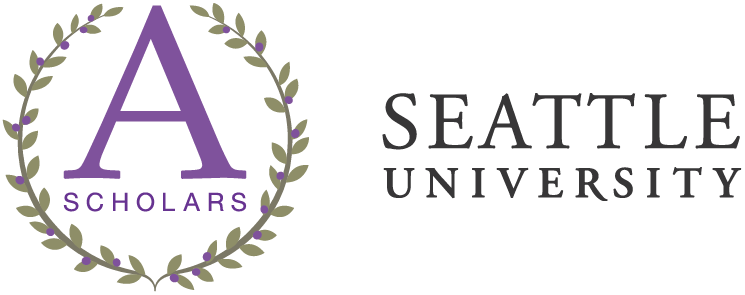Nicolaus "Nico" Seni
Quick Facts
Age: 32
Pronouns: he/him
Major: Nursing, 2025
Notable: First-generation
Languages: Samoan
Transfer Institution: Seattle Central College, Associate in Arts
“Civility reminds me a lot of my Samoan culture due to the “Fa’a Samoa” lifestyle we are brought up in, which translates to the Samoan Way. One example of the Samoan Way is when you meet new people, always treat them with respect and grace no matter how they may act because we believe that love always wins in the end. ”
Awards & Honors:
Alfie Scholars, Cohort 8, 2023–2025
Seattle College Foundation Scholarship
Phi Theta Kappa Scholarship
Nico’s Story
Growing up as the eldest of six in a large family who emigrated from Samoa had its challenges and rewards; this taught me invaluable lessons and influenced my decision to pursue nursing as a career. One challenge was the expectation and responsibility to care for younger family members as we navigated housing and food insecurity. Given the social systems in the U.S., my family often chose between housing stability, healthcare, or food; this resulted in staying with friends and sacrificing meals to ensure resources for younger family members. One of the rewards, however, was the community-centric approach to survival; I was raised by many caregivers who modeled selflessness, ingenuity, and the ability to maintain cultural traditions in times of hardship and celebration. Each experience, regardless of whether it was a challenge or reward, shaped my worldview and the goals I set for my future, including becoming a nurse and instilling the values of community and servant leadership.
My values and cultural experiences drove my interest in nursing, however, my exposure and work in the healthcare field solidified my decision to pursue nursing. In 2012, I attended school as a first-generation college student in California, a two-hour plane ride from my Seattle home. During my first year, my father fell seriously ill and spent months in the hospital. As the eldest sibling, I took the responsibility of withdrawing from courses, returning home, and serving as his in-home health provider. As I watched my father grow sicker, attempt to communicate with staff, and withstand multiple surgeries to keep his heart healthy, I uncovered my passion for nursing. Through multiple hospital visits, I witnessed the empathy, compassion, and technical and communication skills nurses demonstrated daily. These nurses taught me how to build my skills, deepen my understanding of healthcare policies and build support networks for my father. These opportunities influenced my decision to return to school at the height of the pandemic and attend Seattle Central College, a steppingstone toward my goal.
Over the last two years, I have taken courses to further my knowledge and ensure that nursing is a career and profession that aligns with my goals and values. As I reflect on my experiences in the Samoan community, both seeing the health disparities and the opportunity to make an impact, coupled with what I have learned in ten years as a health care provider and two years in school, I am certain that nursing is the career that will allow me to improve the lives of many, continue to live in my values of care and community, and provide excellent care for those who need it the most.
Goals:
My short-term goal is earning my BSN in Nursing at Seattle University. Although I grew up in a tight-knit community there were few resources for an immigrant family of fifteen in a four-bedroom home. To make ends meet there were certain necessities that we had to sacrifice in terms food, sleep, and shelter because there were so many of us. I understood that as an older sibling I wanted to help support my younger siblings in any way I could, which meant me eating smaller portions so they could have more food or even sleeping on the floor so they that could sleep on the bed to get better rest for school. So, in part, there was not a real focus on health and wellness of oneself so that we could all survive together. I began to pursue a career in healthcare to help promote the importance of health and wellness in my community. I believe that through my education I can help guide my community to make better decisions surrounding their health and wellness. For example, many of my community members have been misinformed about certain health conditions such as heart disease, diabetes, or morbid obesity, which are top leading causes of mortality in American Samoa and Samoa. So, I believe that if they knew more about these diseases it could lead them to make more informed decisions about the type of care they need and deserve. I also plan to volunteer for mobile medical vans that serve areas near and in my community to better understand how I can support those underrepresented communities that are unable to travel to clinics or hospitals.
On Civility:
Civility is making a concerted effort to uplift others in need while also realizing that to help others, you must take care of your own well-being. Another main contributor to cultivating civility is communication; you must know where the need for help is to assist people in need effectively. Civility reminds me a lot of my Samoan culture due to the “Fa’a Samoa” lifestyle we are brought up in, which translates to the Samoan Way. One example of the Samoan Way is when you meet new people, always treat them with respect and grace no matter how they may act because we believe that love always wins in the end. It is especially important to show empathy to all people due to the fact that a person may just be having a bad morning or did not sleep well, and that could be the cause of their incivility. When we choose to enter every interaction with Civility, there is always a chance that we may find a peaceful resolution.


